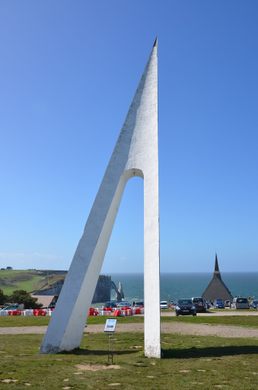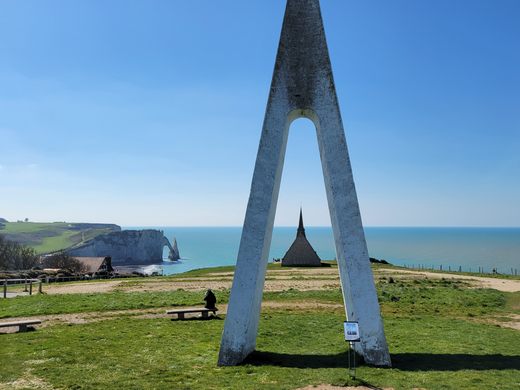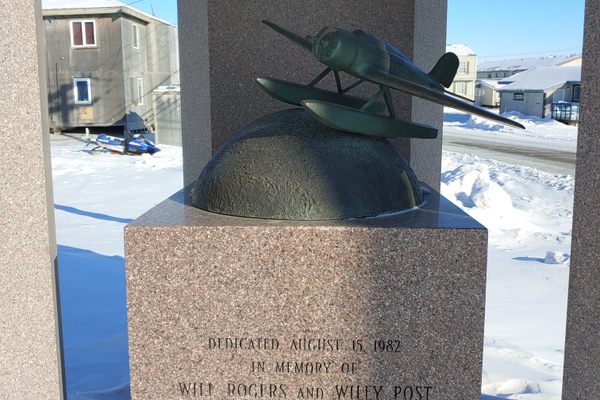AO Edited
Monument L'Oiseau Blanc
In 1927, a biplane disappeared while attempting to complete the first non-stop transatlantic flight between Paris and New York City. This memorial stands at the last place it was seen.
On May 8, 1927, L’Oiseau Blanc, a biplane, disappeared during an attempt to make the first non-stop transatlantic flight between Paris and New York City. The aircraft was flown by two French pilots, Charles Nungesser and François Coli. They departed Le Bourget Field at 05:17 local time. The aircraft, heavy with fuel, barely cleared the trees at the end of the runway. Four military aircraft accompanied the flight on the first leg.
At 06:48, the aircraft was sighted over Étretat on the coast. At this stage, they’d traveled 108 nautical miles in over an hour and a half. Étretat was an important location because it was the decision point. Nungesser and Coli had agreed that they would turn back here if they felt the attempt was unlikely.
They continued flying northwest at a low altitude, crossing the English Channel. Later the four military aircraft turned back and L’Oiseau Blanc flew on. The aircraft and crew were later lost. The reason for their disappearance and their ultimate fate is still a mystery.
A fisherman reported seeing the wreckage of the plane in the water off the coast of Étretat a day or two after the famous departure. Other reports claim to have heard the plane flying over Exeter UK at 08:15 fitting the timeline, as does a 10:00 sighting over County Clare in Ireland. There are also a number of witnesses in Newfoundland and Maine including seven reports made from residents of Harbour Grace in Newfoundland who stated that they had heard an aircraft flying overhead around 9:30 or 10:00. One more report in the north-east of Maine, stated that they heard a plane engine misfiring and the sound of a crash. No wreckage of the aircraft was ever found.
Less than two weeks after the disappearance of the biplane, the American Charles Lindbergh successfully completed the non-stop transatlantic flight with the Spirit of St. Louis, leaving from New York and touching down at Le Bourget airport on May 21, 1927.
The monument is located on the hill overlooking Étretat, near the Chapelle Notre-Dame-de-la-Garde and within sight of the Falaise d’Aval, a towering white cliff featuring a monumental natural arch eroded by the sea, accessible at low tide. A museum near the sight offers a discovery of the history of Etretat, from its origins to the end of World War II, and a room reserved for Nungesser and Coli aviators.






















Follow us on Twitter to get the latest on the world's hidden wonders.
Like us on Facebook to get the latest on the world's hidden wonders.
Follow us on Twitter Like us on Facebook